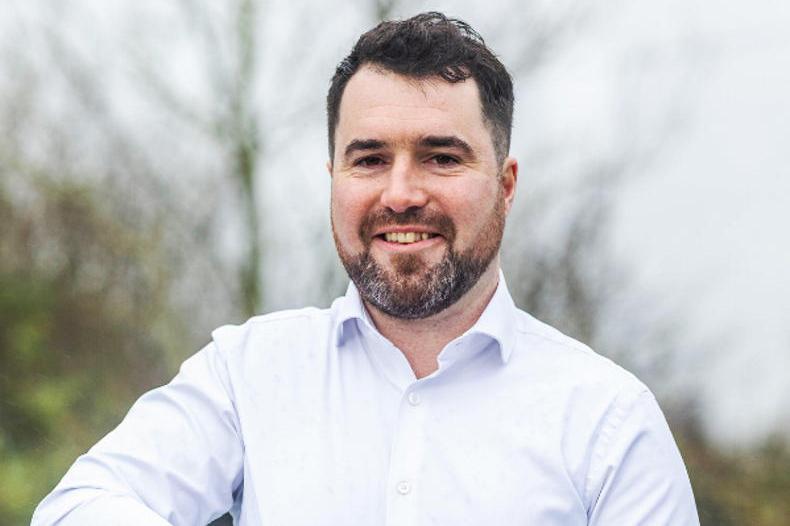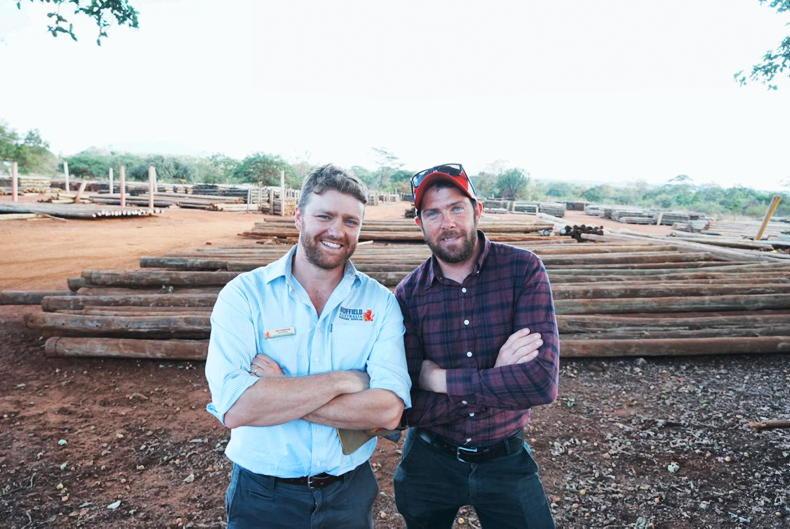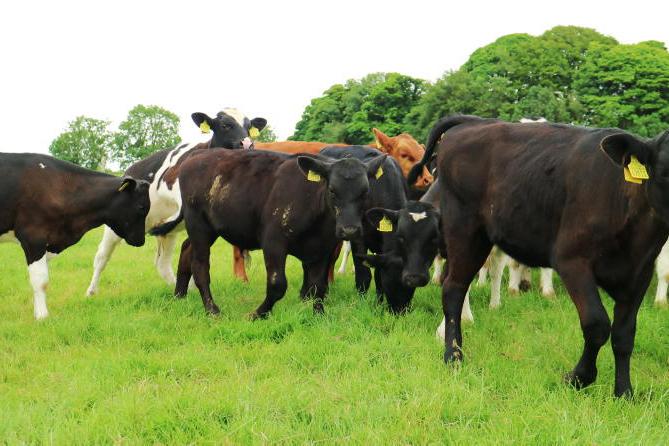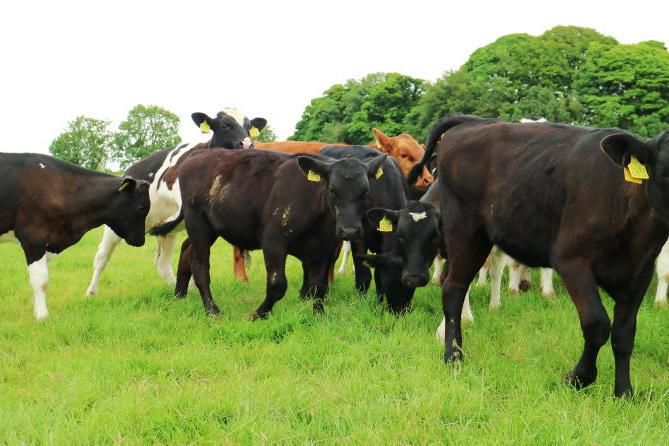Five bursaries worth a combined €70,000 have been awarded to the recipients of the 2021 Nuffield scholarships.
The chosen five people will research topics as diverse as how to develop a large scale sheep dairy industry, to urban farming and sexed semen for the dairy industry.
The scholarship programme is aimed at helping people develop their capacity, character and confidence to promote positive change and world class leadership in agriculture, food and farming, according to John Tyrrell, executive secretary of Nuffield Ireland. The bursary of €14,000 enables scholars to travel abroad for at least nine weeks, part of which includes joining an international group of scholars.
Here are the 2021 Nuffield Ireland recipients:
Brendan Crosse, Cashel, Co Tipperary.
In 2016, Brendan and his brother Michael got into farming by establishing a sheep dairy farm. Their business is Sheep Milk Ireland Ltd. They are currently supplying a number of cheesemakers across Munster, most notably Cashel Farmhouse Cheesemakers.
They have scaled the business and are developing innovative sheep milk powder products.
Sheep Milk Ireland aims to create a large-scale sheep dairy industry in Ireland and offer other farmers the opportunity to get into the industry.
Crosse’s study topic is: Creating alternative primary agri-food industries in Ireland; Designing a sheep milk industry across the entire supply chain and the role that a co-op can play in this.
Alex Eivers, Trim, Co Meath.
From a poultry and tillage farm, Alex’s parents pioneered commercial free-range egg production in the 1980s. He spent 10 years working in the world of fresh produce, culminating in a senior commercial role. In 2013, while still working full-time, Alex spearheaded the expansion of the family poultry farm, from 20,000 free-range laying hens to 40,000.
In 2018, due to the commitment required, he made the decision to focus on full-time farming, with a view to further expansion.
His Nuffield study is titled: Efficiency of egg production systems in Ireland and the marketing of the Irish eggs.
Ray O’Foghlu, Milltown Malbay, Co Clare.
A school teacher who retrained in environmental science, O’Foghlu now works for An Taisce, focusing on community engagement in projects such as community woodlands under the Learning about Forests (LEAF) programme.
He is an advocate of returning trees and forests of all types to the Irish landscape.
Ray also believes native and commercial woodlands, hedgerows, riparian buffer strips and other forms of tree cover can deliver functionality and value to landowners, as well as benefits to the wider community.
His study topic, titled Acquiring social licence to increase tree cover on the Irish landscape, will investigate attitudes and explore policy opportunities in this area.
Brian McCarthy, Cork city.
Brian has a background mainly in floriculture and the wholesale supply of fresh flowers and plants to the floristry market in Ireland.
In March 2020, Brian was forced to close his wholesale flower business due to the COVID-19 lockdown and engaged in a rooftop farming project in the heart of Cork City, namely Cork Rooftop Farm.
Through social and mainstream media attention, a viable business emerged from the lockdown, with a focus on connecting urban consumers with their produce using regenerative and sustainable techniques. His topic is: Regenerative agriculture practices in an urban environment which reconnects people with the source of their food.
Heather Steele,
Dublin and Donegal
Steele is currently a PhD researcher at UCD and livestock embryologist. Her PhD research is about sexing semen and how this affects sperm quality and embryonic development.
She studied at UCC and University of Nottingham, and later worked with a veterinary practice on Co Tyrone.
Heather’s study topic is: Using Sexed Semen to improve the sustainability of the Irish dairy industry.
She is a strong believer in research that will have a real world influence and can be readily translated into practice.
Five bursaries worth a combined €70,000 have been awarded to the recipients of the 2021 Nuffield scholarships.
The chosen five people will research topics as diverse as how to develop a large scale sheep dairy industry, to urban farming and sexed semen for the dairy industry.
The scholarship programme is aimed at helping people develop their capacity, character and confidence to promote positive change and world class leadership in agriculture, food and farming, according to John Tyrrell, executive secretary of Nuffield Ireland. The bursary of €14,000 enables scholars to travel abroad for at least nine weeks, part of which includes joining an international group of scholars.
Here are the 2021 Nuffield Ireland recipients:
Brendan Crosse, Cashel, Co Tipperary.
In 2016, Brendan and his brother Michael got into farming by establishing a sheep dairy farm. Their business is Sheep Milk Ireland Ltd. They are currently supplying a number of cheesemakers across Munster, most notably Cashel Farmhouse Cheesemakers.
They have scaled the business and are developing innovative sheep milk powder products.
Sheep Milk Ireland aims to create a large-scale sheep dairy industry in Ireland and offer other farmers the opportunity to get into the industry.
Crosse’s study topic is: Creating alternative primary agri-food industries in Ireland; Designing a sheep milk industry across the entire supply chain and the role that a co-op can play in this.
Alex Eivers, Trim, Co Meath.
From a poultry and tillage farm, Alex’s parents pioneered commercial free-range egg production in the 1980s. He spent 10 years working in the world of fresh produce, culminating in a senior commercial role. In 2013, while still working full-time, Alex spearheaded the expansion of the family poultry farm, from 20,000 free-range laying hens to 40,000.
In 2018, due to the commitment required, he made the decision to focus on full-time farming, with a view to further expansion.
His Nuffield study is titled: Efficiency of egg production systems in Ireland and the marketing of the Irish eggs.
Ray O’Foghlu, Milltown Malbay, Co Clare.
A school teacher who retrained in environmental science, O’Foghlu now works for An Taisce, focusing on community engagement in projects such as community woodlands under the Learning about Forests (LEAF) programme.
He is an advocate of returning trees and forests of all types to the Irish landscape.
Ray also believes native and commercial woodlands, hedgerows, riparian buffer strips and other forms of tree cover can deliver functionality and value to landowners, as well as benefits to the wider community.
His study topic, titled Acquiring social licence to increase tree cover on the Irish landscape, will investigate attitudes and explore policy opportunities in this area.
Brian McCarthy, Cork city.
Brian has a background mainly in floriculture and the wholesale supply of fresh flowers and plants to the floristry market in Ireland.
In March 2020, Brian was forced to close his wholesale flower business due to the COVID-19 lockdown and engaged in a rooftop farming project in the heart of Cork City, namely Cork Rooftop Farm.
Through social and mainstream media attention, a viable business emerged from the lockdown, with a focus on connecting urban consumers with their produce using regenerative and sustainable techniques. His topic is: Regenerative agriculture practices in an urban environment which reconnects people with the source of their food.
Heather Steele,
Dublin and Donegal
Steele is currently a PhD researcher at UCD and livestock embryologist. Her PhD research is about sexing semen and how this affects sperm quality and embryonic development.
She studied at UCC and University of Nottingham, and later worked with a veterinary practice on Co Tyrone.
Heather’s study topic is: Using Sexed Semen to improve the sustainability of the Irish dairy industry.
She is a strong believer in research that will have a real world influence and can be readily translated into practice.








SHARING OPTIONS